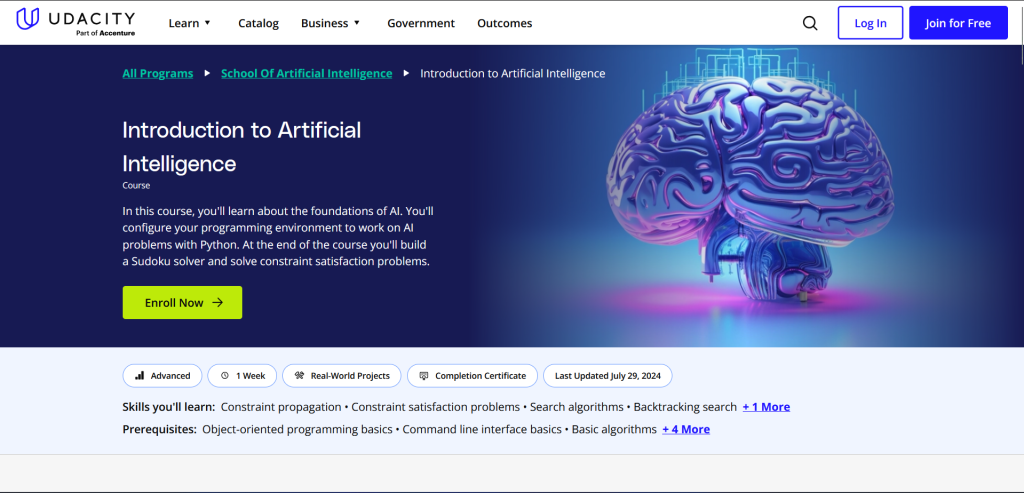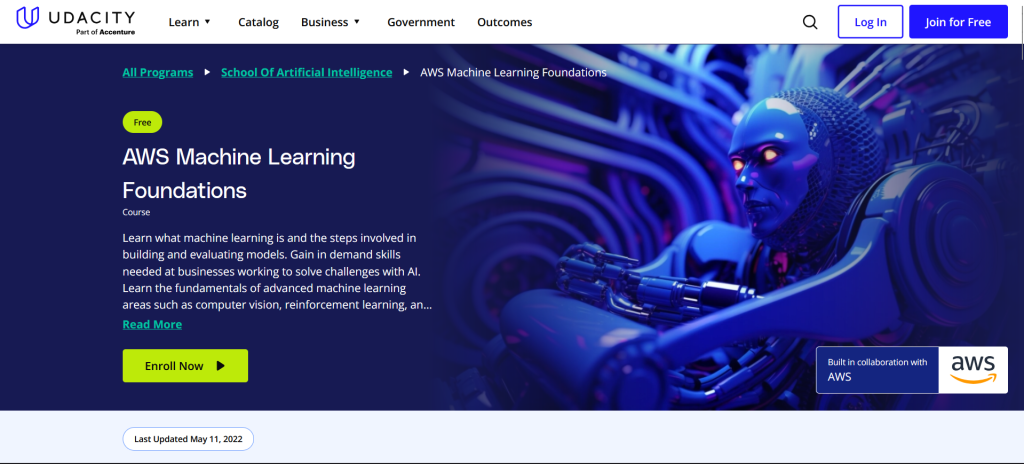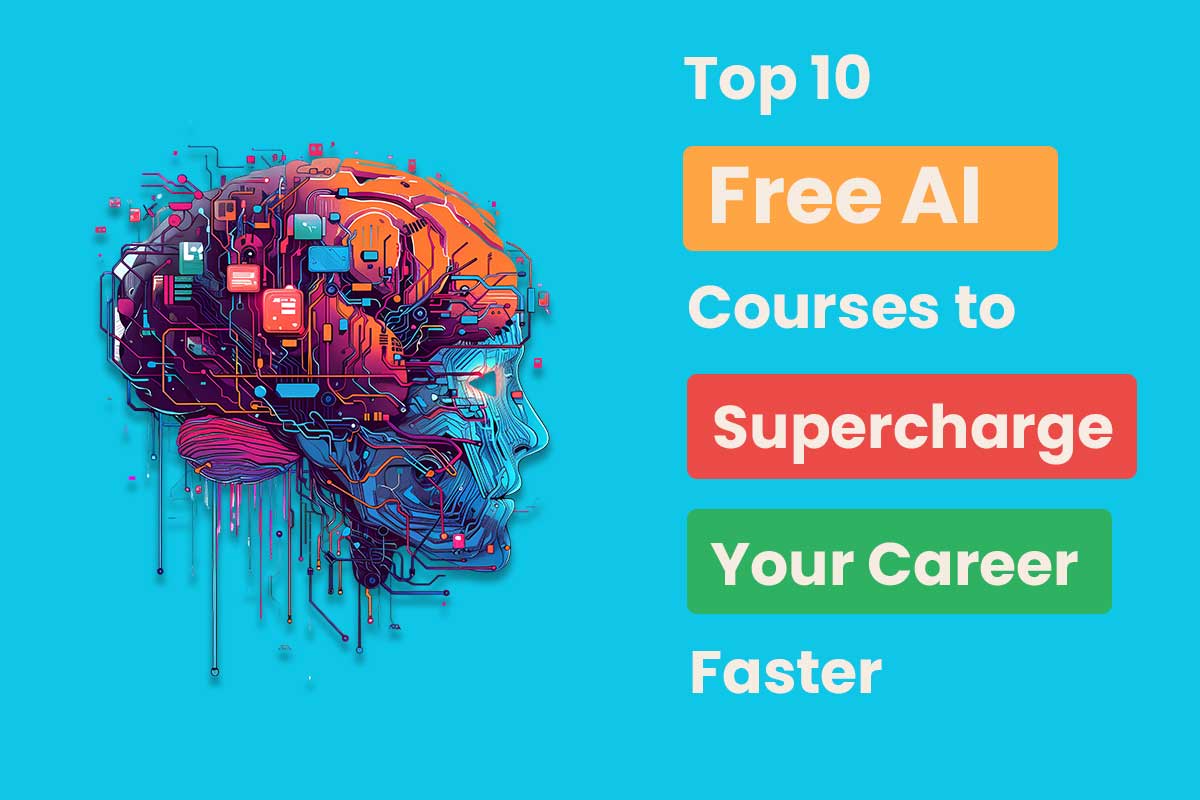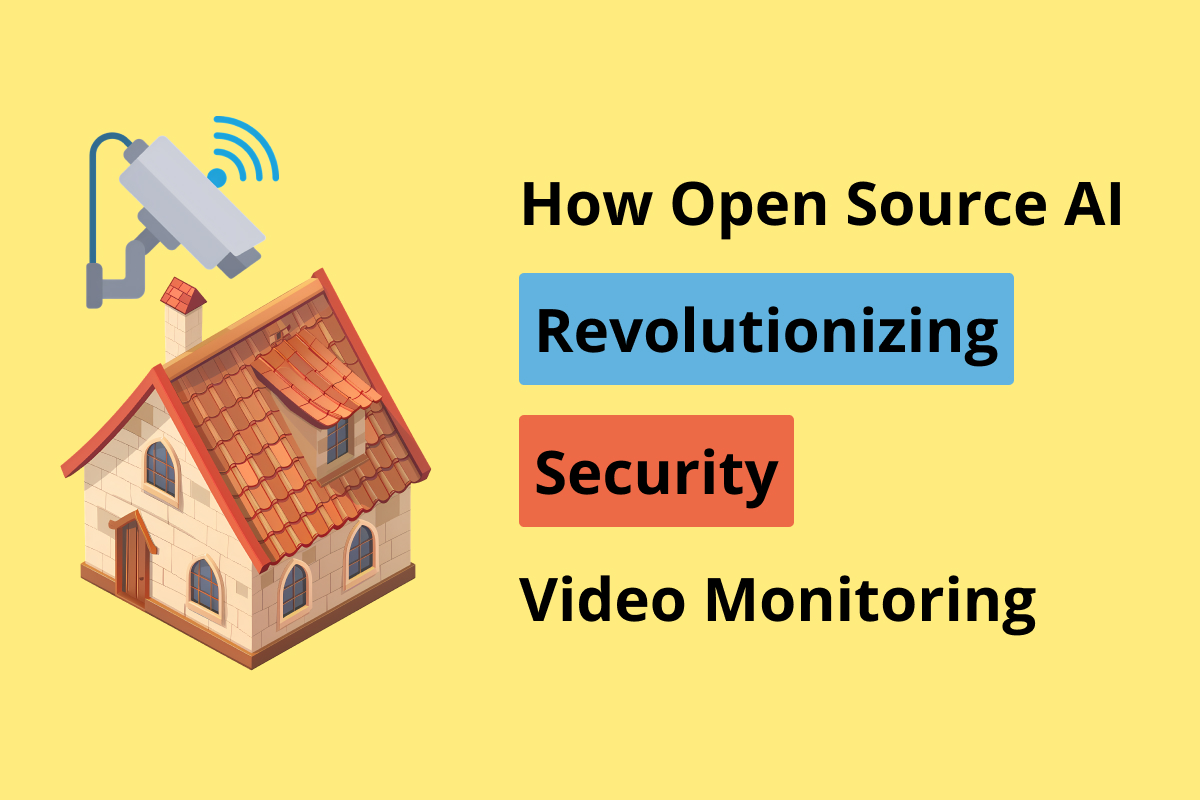Introduction
Artificial Intelligence (AI) is transforming industries and shaping the future of technology. Whether you’re an AI enthusiast or a professional looking to stay ahead, free AI courses provide an accessible way to gain valuable knowledge. Universities and tech giants alike offer top-notch, free AI programs designed to fit learners at various skill levels.
In this guide, we’ll explore the top 10 free AI courses that provide you with the resources, certification opportunities, and practical knowledge to elevate your understanding of AI and machine learning. These courses are ideal for beginners, intermediate learners, and even advanced practitioners.
What Are the Best Free AI Courses for Beginners?
With AI becoming integral to fields like data science, robotics, and even everyday applications, starting your journey with a structured course is essential. For beginners, the learning curve can be steep, but with the right course, you can master foundational AI concepts with ease. Below are the best free AI courses designed specifically for those new to the subject.
Stanford University – Exploring AI Art
Stanford University offers a unique course titled “Exploring AI Art”, where learners dive into the fascinating intersection of artificial intelligence and creativity. This free course is designed to introduce students to the emerging field of AI-generated art, covering everything from the algorithms behind artistic creation to the ethical implications of AI as an artist.
Students will explore how neural networks can be trained to produce visual art, music, and even literary compositions. With a focus on both technical and philosophical aspects, the course provides hands-on opportunities to create AI art projects while also debating the cultural impact of AI in the world of creativity.
Google AI – Machine Learning Crash Course
Google, a leader in AI innovation, offers the Machine Learning Crash Course (MLCC) through its Google AI platform. The course introduces learners to the fundamentals of machine learning (ML), a critical component of AI. You’ll gain hands-on experience through interactive exercises and real-world case studies.
What makes this course stand out is its practical approach, teaching you how to build and train machine learning models, which can help solidify your understanding of AI concepts.
MIT – Introduction to Deep Learning
When discussing AI education, MIT often tops the list. Their Introduction to Deep Learning course is part of MIT’s free online curriculum. This program covers deep learning fundamentals, including neural networks, computer vision, and natural language processing.
Designed for those with some prior programming experience, MIT’s offering is great for both AI beginners and intermediate learners. The course also includes hands-on projects to reinforce the theoretical knowledge.
Microsoft – AI Fundamentals
Microsoft offers a free AI Fundamentals course via its Microsoft Learn platform. This course covers the basics of AI and machine learning, focusing on Azure’s AI services. It’s a fantastic resource for those looking to explore AI’s real-world applications in cloud computing.
This course also provides certification upon completion, giving learners a tangible credential to add to their portfolio.
Harvard University – CS50’s Introduction to Artificial Intelligence with Python
Harvard’s CS50 AI course introduces the principles and techniques behind AI, including knowledge representation, machine learning, logic, and constraint satisfaction. This program also involves practical Python-based assignments, making it ideal for learners who already have basic programming knowledge but are new to AI.
Harvard’s high-caliber content, coupled with its hands-on approach, makes this one of the most comprehensive free AI courses for beginners.
Udacity – Intro to Artificial Intelligence
While Udacity offers many paid programs, their Intro to AI is freely available and highly respected in the AI learning community. It covers a broad range of topics including probabilistic reasoning, robotics, and natural language processing.

While this program assumes some familiarity with programming and mathematics, it offers a thorough introduction to AI for aspiring professionals.
IBM – AI Engineering Professional Certificate
Although IBM’s AI Engineering course offers a paid certification, you can access the core content for free. This program is perfect for intermediate learners, focusing on the application of machine learning algorithms, neural networks, and deep learning.
IBM also provides access to its cloud-based tools for practical experience, further enhancing the learning process.
Coursera – AI for Everyone by Andrew Ng
Taught by Andrew Ng, a pioneer in the field of AI, this Coursera course is designed to help beginners understand what AI is and how it can be applied to business and technology. This free course doesn’t require programming experience and focuses on AI’s societal impacts rather than technical deep dives.
This course is perfect for anyone looking to understand AI from a conceptual point of view, rather than becoming a coder or engineer.
University of Helsinki – Elements of AI
The University of Helsinki, in collaboration with Reaktor, offers Elements of AI, one of the most popular free AI courses in Europe. It provides a great introduction to AI’s fundamental principles, broken down into six parts. Each module is designed to be accessible to all levels, with real-world examples making the theory easier to grasp.
This course’s widespread popularity stems from its clarity and inclusiveness, proving that AI isn’t just for engineers but for everyone.
Amazon Web Services (AWS) – Machine Learning Foundations
AWS offers a free Machine Learning Foundations course, which covers the basics of machine learning and AI. Aimed at those interested in cloud-based AI development, this course provides insights into AWS’s machine learning tools and services, preparing learners to integrate these skills into professional projects.

As the leader in cloud technology, AWS’s free courses are invaluable for tech professionals seeking to incorporate AI into their cloud strategies.
Why Take Free AI Courses?
AI is a rapidly growing field, and staying updated with the latest knowledge is crucial for success. Free AI courses from reputable institutions provide an affordable way to gain these skills. Whether you’re looking to transition into AI from another field, enhance your existing knowledge, or add new certifications to your resume, these programs offer comprehensive learning paths without the hefty price tag.
FAQs
What is the best free AI course for complete beginners?
For absolute beginners, AI for Everyone by Andrew Ng on Coursera is highly recommended. It offers an excellent introduction without requiring prior technical knowledge.
Do free AI courses offer certifications?
Yes, many free AI courses provide certifications upon completion, such as those offered by Microsoft and IBM.
Are there any prerequisites for these AI courses?
While some courses, like Stanford’s AI for Everyone, require no prerequisites, others, such as MIT’s Introduction to Deep Learning, assume some programming or mathematical knowledge.
How long does it take to complete a free AI course?
Course lengths vary, but most free AI courses can be completed in 4-12 weeks, depending on the course load and the learner’s pace.
Can I build practical AI projects after taking these courses?
Yes, most courses provide practical exercises and projects to apply your new AI skills in real-world scenarios, especially the ones offered by Google, MIT, and IBM.
What programming languages are used in these AI courses?
Python is the most commonly used language in AI courses due to its popularity and versatility in AI and machine learning.
Conclusion
Whether you’re just starting out or looking to deepen your understanding of AI, these top 10 free AI courses offer a fantastic opportunity to gain cutting-edge knowledge without the financial burden. From Stanford and MIT to tech giants like Google and Microsoft, these programs provide the perfect foundation for anyone serious about a future in AI.




